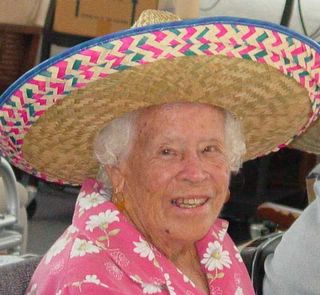Life in Shades of Gray*
One of the things that I have noticed in our world of relativity is that for anyone to see things as black and white are considered to be too judgmental, critical, intolerant, and bigoted. The air we breathe is subjectivity and relativism, and it is almost uncouth to say that 2+2=4 because that would be an absolute. Why can't it be 5, or 3.5, or 14.783333333? No one wants to make distinctions or judgments anymore for fear of being told they are intolerant and divisive. You see this when you are with a group trying to find which fast food restaurant to go to. Everyone is like, "Wherever man . . .", but when someone says, we are going to Burger King, those wanting to go to Arby's or Subway is like, "I really don't want to go to Burger King." Yet they would never say so for fear of offending or upsetting anyone. This silly example is indicative of far weightier matters in life. It seems that no one wants to make any judgments anymore, primarily because no one believes in absolute truth and upholds it in their lifestyles. Truth is controversial, offensive, exclusionary, and intolerant, and it scares people away to the point that people today cannot stand to speak the truth. Everyone says, "Let's be tolerant of everyone else's viewpoints/opinions." Well, there are two ways this understanding and appreciation of other people's viewpoints can be worked out - tolerance or compassion. Tolerance values different views in spite of truth; compassion values different views because of truth. If your actions are not grounded in something universally applied and objectively appreciated, then nothing you do (as in tolerance) carries any virtue or significance because it necessitates nothing but variability. John MacArthur makes a very good point in Fool's Gold by saying that the word "discrimination" has been tainted as taboo since the civil rights movement. You can hear the cries of the public, "Don't discriminate! Fight discrimination!" Yet, what does the word mean in its purest form? Someone who discriminates "exercises judgment"; someone who has the ability to draw the line between right and wrong, good and evil, true and false. Because we are told not to discriminate, our culture does not know what is true versus false, right versus wrong, good versus evil. Therefore, we live in shades of gray everywhere. Whether it be in the church, for someone to exercise judgment your hear the cries of the parishioners, "Judge not lest you be judged! Take the log out of your own eye before you take the speck out of mine!" Yet they don't realize that what Jesus was saying was not that you should not judge someone, but the way in which you judge someone. I find it interesting that the word discernment come from the same Greek word as discrimination. It is the word diakrino. Krino is the Greek verb "to judge", and dia is the preposition meaning "through, on account of." What the church needs today, and what the world needs today are people who exercise discernment, people who have the spectacles through which healthy judgments can be made, distinctions can be drawn, delineations can be found, and discrimination be upheld. For some reason, people have this odd tendency to think that anyone who makes judgments and are critical are always "doom and gloom", sad and repressed, vindictive and divisive. Why can't people who exercise discernment be "joy-filled" and "living the abundant life in Christ"? It appears to me that only those who don't make any judgment and are never critical are eligible for that kind of life today. If this is the case, the church and its distinctive doctrines will be submerged in the sewer while we continue to sing "The Happy Song." The book of Proverbs is one in which many find their devotions. In it are very pithy and poignant statements that are helpful in everyday life. But if you look at the nature of most of these proverbs, they are black and white. You read statements like, "The righteous . . . , but the wicked . . . ," or "The wise man . . ., but the fool . . .." There is no middle ground, no gray area in the book of Proverbs. Why is that you might ask? A wise person in that day in the most elementary terms was known as a "skillful person". They knew how to live life skillfully, having understanding, gaining knowledge, and treasuring wisdom as "more precious than gold." This skill was sharpened daily be the exercising of knowing right from wrong, good from evil, the wise man from the fool, the righteous from the wicked, the fear of the LORD from the folly of man, etc., and all these were done in the spirit of discrimination, making value judgments based from the character of Yahweh and His Word. Discernment in Hebrew is bin, which is related to the word bayin, which means "interval, space between," which also relates to the preposition ben which means "between." The wise man who exercises discernment cuts, divides the two, makes separation between the two, and places a wide space inbetween them. Today, at least for the past 100 years, everything has been put together in one big smorgasbord of ideologies, and Christianity is be pushed into its mold. So as we live this life in shades of gray, what will be said about us? About me? Am I to cower down to those who say that I should not be critical, that I should not exercise discernment, that I should just shut up, chew on some "tasteless testamints", and sing with giddiness "The Happy Song"? HELL NO. For between heaven and hell is a space inbetween that can never be bridged! And as a Christian, I am called, yea beseeched to discriminate, for my God discriminates between those who will go to heaven and those who will go to hell. 2+2 still equals 4, and there is still a right from wrong, though our culture, and sometimes our church refuses to realize it. For the sake of the Church and for the souls of men, and testimony of Jesus Christ, there must be Christians who are willing to stand for truth, to make sound judgment, weather the attacks, and be a men and women who exercise discernment that we may not be pussy-footin' the gospel and wag the church's tail as we bark after the culture.

























